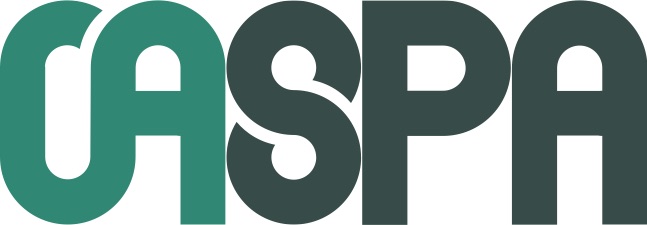متطلبات توظيف التعلم الذكي في العملية التعلمية – التعليمية في جامعة الاستقلال من وجهة نظر أعضاء هيأة التدريس
DOI:
https://doi.org/10.36473/ujhss.v59i2.1079الكلمات المفتاحية:
التعلم الذكي، البيئة التعليمية، جامعة الاستقلالالملخص
ﻫدﻓت ﻫذﻩ اﻟدراﺳﺔ الى معرفة متطلبات توظيف التعلم الذكي في العملية التعلمية- التعليمية في جامعة الاستقلال من وجهة نظر أعضاء هيئة التدريس. استخدمت الباحثة الاستبانة كأداة لجمع المعلومات التي تكونت من (36) فقرة وضمت أربعة مجالات وهي: الأبنية والأجهزة والمعدات، البرامج والتقنيات، الكادر البشري والتنظيمي، مواصفات المنهاج الإلكتروني، اشتملت على عينة البحث (100) عضو من أعضاء الهيئة التدريسية في جامعة الاستقلال. وأظهرت نتائج الدراسة أن متطلبات المنهاج الإلكتروني ومواصفاته حصلت على درجة عالية من الاهتمام وذات الأولوية من قبل أعضاء هيأة التدريس لتوفيرها في العملية التعلمية- التعليمية في الجامعة، وكانت أعلى بنود هذا المجال الفقرة التي تطلب تنويع أساليب التقويم، حيث كانت بوزن نسبي قدره (96.71%). فيما كانت الدرجة الثانية من متطلبات توظيف التعلم الذكي في العلمية التعلمية- التعليمية في جامعة الاستقلال من وجهة نظر أعضاء هيئة التدريس فكانت بضرورة توفير الكادر البشري والتنظيمي، وركزت مطالب هذا المجال على ضرورة توفر عضو هيئة تدريس قادر على استخدام تقنيات وتطبيقات التعلم الذكي، حيث حصلت على وزن نسبي قدره (88.33%). أما الدرجة الثالثة من متطلبات توظيف التعلم الذكي في العلمية التعلمية- التعليمية في جامعة الاستقلال من وجهة نظر أعضاء هيأة التدريس كانت متطلبات البرامج والتقنيات، فقد ركزت مطالب هذا المجال على ضرورة توفير برامج الاستجابة التفاعلية، وحصلت على وزن نسبي قدره (85.03%). وأخيراً حصلت الأبنية والمعدات والأجهزة على الدرجة الرابعة والأخيرة من متطلبات توظيف التعلم الذكي في العلمية التعلمية-التعليمية في جامعة الاستقلال من وجهة نظر أعضاء هيئة التدريس، فقد ركزت مطالب هذا المجال على توفير قاعات دراسية تحتوي على الأجهزة اللازمة لاستخدام التعلم الذكي، وحصلت على وزن نسبي قدره(84.8%). وأوصت الدراسة بضرورة الاستفادة من المتطلبات التي حددتها الدراسة في توظيف التعلم الذكي في العملية التعلمية- التعليمية في جامعة الاستقلال.
التنزيلات
المراجع
References
• Abdul Karim, M. Abdul Aziz, (2006). "An evaluation study of the e-learning
experience in the model schools for girls in Jeddah", an unpublished M.A. thesis.
College of Education, King Saud University.
• Abu Nahia, S.(2000). Statistical Methods in Research and Teaching. 2nd Edition.
Cairo.The Anglo-egyptian Library.
• Ahmed, R. Mustafa (2012). "The use of e-learning to achieve quality standards in the
educational process". The Arab Journal to ensure the quality of university education,
No. (9), Volume V.
• Al-Barakati, N. H.(2008). "The Effect of Teaching by Using Multiple Intelligence
Strategies and Six Hats on Achievement, Communication and Mathematical
Interdependence of Third Grade Students in Makkah". Unpublished (Ph.D.)
Dissertation Saudi Arabia, Umm Al-Qura University.
• Ali, M. Abdel Moneim, (1996). The technological innovations in the field of
education, nature and characteristics, series of studies and research technology
education, the fourth scientific conference "Education technology between theory and
practice."
• Al-Khalayleh, A.(1997). Methods of Teaching Thinking for Children. 2nd Edition.
Dar Al-Fikr for Printing and Publishing. Amman.
• Al-Ruwaili, Z.(2008). "Using the Internet in Sader Teaching and Learning Centers to
Support Teaching from the Perspective of Teachers and Secondary School Students in
Riyadh".Unpublished M.A. Thesis, King Saud University.
• Al-Wasimi, E.(2007). "The Effect of Using Active Learning on the Acquisition of
Science and Development of Some Scientific Thinking Skills and Science Processes
for First Grade Students". Arabic Studies Series in Education and Psychology, Vol.
• Moshi, Z.(2016). Activating the e-learning system as a mechanism to raise the level
of performance in universities under information technology, XI International
Conference, learning in the era of digital technology, Tripoli.
• Shaheen, A.Hassan, (2010). Advanced teaching strategies and learning strategies and
learning styles, Faculty of Education, Alexandria University.
• Zain, A.(2000). Artificial Intelligence and Expert Systems in Libraries. 1st Edition.
Cairo. Academic Library.
Al-Far, I. Abdel-Wakil, (1998). Computer Education and the Challenges of the
Twenty-first Century. Cairo: Dar Al-Fikr Al-Arabi.
Al-Hadi, M. (2005). E-learning via the Internet. 1st Edition. Cairo. EgyptianLebanese House.
Collins, B. Karl, J. Riggs, L. Galloway, C. and Hager, K. 2010. Teaching Core
Content with Real-Life Applications to Secondary Students with Moderate and
Severe Disabilities,
Goudas, M. Dermitzaki, I. Leondari, A. and Danish, S. 2006. The Effectiveness of
Teaching a Life Skills Program in a Physical Education Context, European Journal of
Kavanagh, M. and Chorak, B. 2003. Teaching Law as a Life Skill How Street Law
helps Youth make the transition to Adult Citizenship, Journal for Juvenile
programs to Enhance adolescents Development, In J. V. Raalte and B . Brewer
(Eds.), Exploring sport and exercise psychology, 2nd ed., 205 -225,Washington, DC:
APA Books.
Psychology of Education, 21(4): 429-438. Gould. D., Collins. K., Lauer, L. and Chung,
A. 2007 . Coaching Life Skills through Football; A Study of Award Winning High
School Coaches, Journal of Sport Psychology, 19, 1, 16-37.
Teaching Exceptional Children, 43 (1): 52-59. Danish, S . Fazio, R. Nellen, V. and
Owens, S. 2002. Teaching Life Skills Through sport: Community-based life skills












